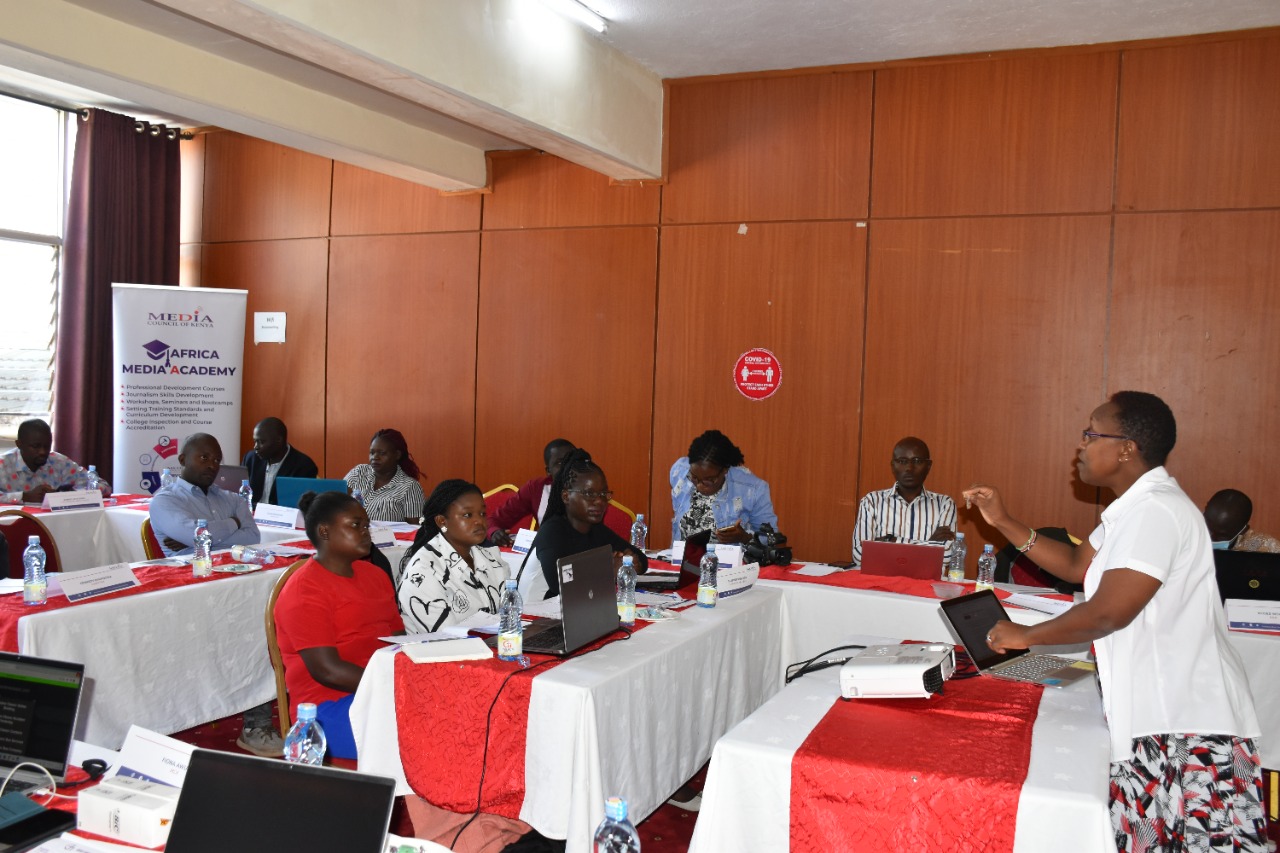
The Media Council of Kenya has reaffirmed its commitment to ensuring that journalists focus on development stories including climate change crisis.
MCK Director for Media Training and Development Mr Victor Bwire says the media is critical in setting the agenda for policy reform, financing and behavior change towards ensuring climate change adaptation.
“Climate change is a cross-cutting issue affecting education, health, food security, sports and virtually every facet of life. Therefore, there is need to tell these stories in a human-interest manner”, Mr Bwire said during a climate change reporting training in Kakamega, which included a field visit to Kakamega Forest, the last remaining tropical rainforest in the country.
The training came ahead of the 27th session of the Conference of the Parties to the United Nations Framework Convention on Climate Change (UNFCCC) – known simply as COP 27 which will take place in November at Sharm El-Sheikh, Egypt.
Mr Bwire said journalists have a responsibility to turn the spotlight on how the county’s and national government’s policies are working towards the conservation of Kakamega and other forests.
“There are climate change stories everywhere you turn and this training is to help you craft your stories in a manner that secures publication and has impact”, Mr Bwire noted.
He said the Council will walk with journalists in climate change reporting through training, mentorship and financial support.
“As an indication of our commitment to climate change reporting we are soon announcing travel grants to help you do well-researched stories on climate change in your local areas”.
He urged journalists to build their expertise on climate change by doing courses on the subject. “The Media Council has a short modular course on climate change which will be offered online and we urge you to be on the lookout so that you can build your expertise”.
Mr Bwire outlined a number of story ideas which journalists could pick. They include how solar energy has changed lives; how erratic weather has hurt food security. Others are how flooding hampers transport and affects the health of communities.
‘There is also conflict which is brought about by diminishing resources caused by climate change”, he noted.
He urged journalists to read widely to build their expertise. “Read the Constitution, Kenya Vision 2030, Agenda 2063 and Global Conventions on climate change to acquaint yourself with some of the commitments so that you can put governments and leaders to account”, Mr Bwire said.
MCK Assistant Director for Training and Curriculum Development Ms Christine Nguku urged journalist to humanise their stories for greater effect.
“Even though we are talking about big words like climate change, mitigation and adaptation ensure your stories are centred on the people”, said Ms Nguku.
University of Nairobi Climate Scientist Mr Cromwel Busolo told journalists to master basic definitions related to climate change to ensure that their stories are understood globally.